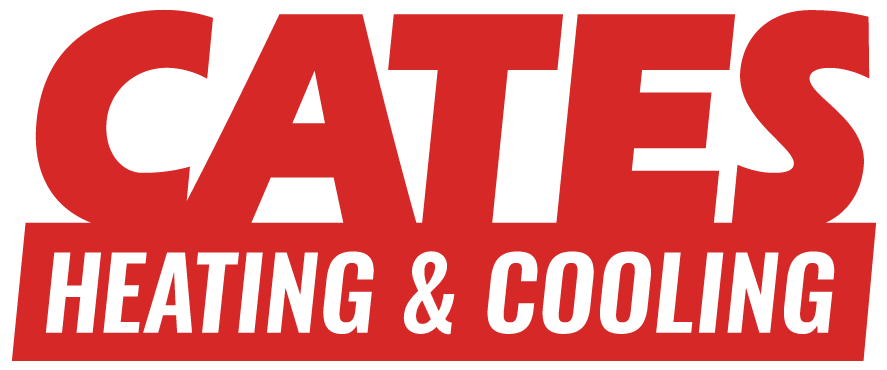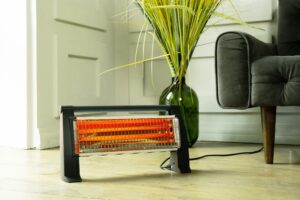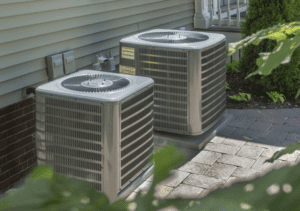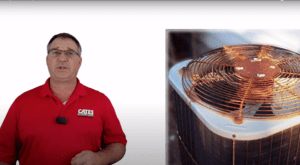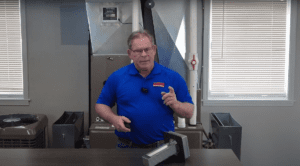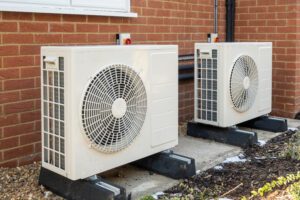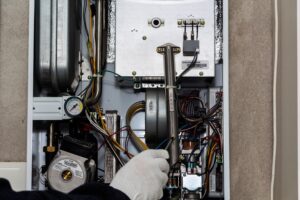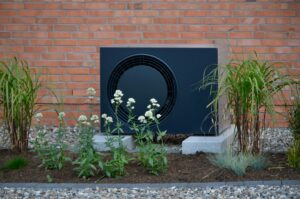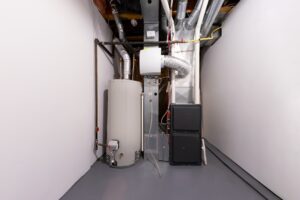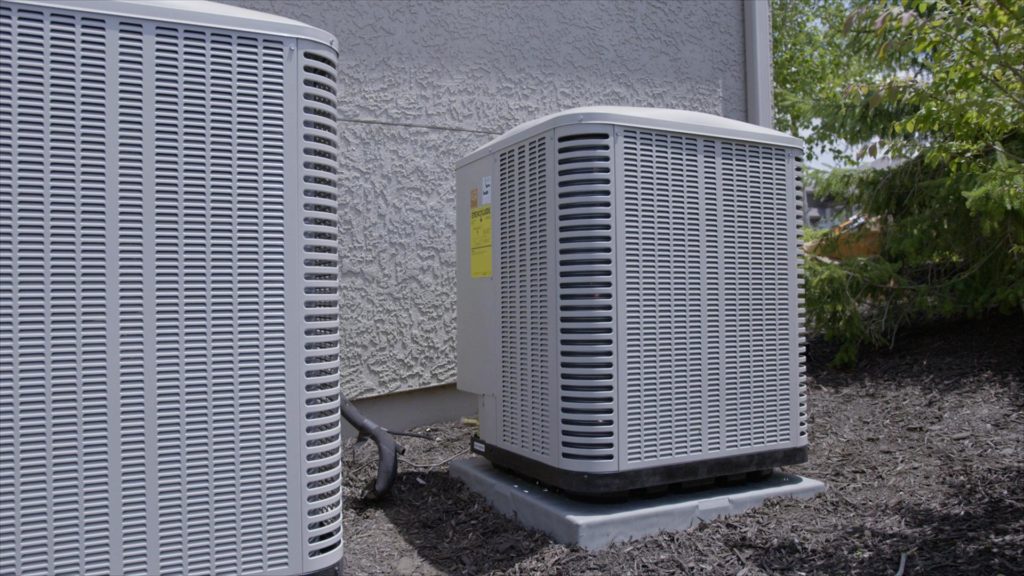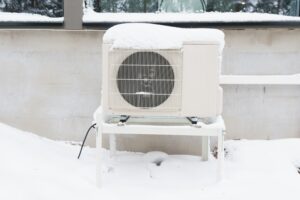When it comes to preparing for the warm Kansas City summers, residents want to make sure that they have a running air conditioner. However, there are so many different types of air conditioners, that it can be a bit confusing for those who don’t work in the HVAC field. Cates Heating and Cooling is here to help explain the different types of air conditioners that are available to put in a residential property.
TYPES OF AIR CONDITIONERS:
- Central Air Conditioners
- Ductless Mini-Split Air Conditioners
- Window Air Conditioners
- Portable Air Conditioners
- Hybrid Air Conditioners
- Geothermal Air Conditioners
CENTRAL AIR CONDITIONERS
Pros:
- Efficient cooling in larger homes
- Consistent temperatures all year
- Filtered air
- Units can offer both heating and cooling
Cons:
- Duct maintenance required
- Inability to control individual parts of the home
- Higher operating costs than single-room air conditioners
Central air conditioners are the most commonly used AC option in the Kansas City metro area, as well as the rest of the United States. This type of air conditioner is one of the best at cooling large homes. Using ducts, central air conditioners circulate cool air through your home. These ducts carry cooled air into the home as well as remove warm air to prevent the home from heating up too much.
Installation for a central air conditioning unit is more complicated than many other types of air conditioners, because it requires a lot of planning and sizing to make sure that the unit is the proper fit for your home. An improperly sized central air conditioning unit will not be energy efficient.
MINI-SPLIT AIR CONDITIONERS
Pros:
- Allows for cooling of individual rooms in the home
- Each zone has its own thermostat
- Easy to install
- Ductwork installation is optional
Cons:
- Systems tend to cost a bit more than forced air equipment
- Indoor components are visible in your home
- Installation calculations are for heating and cooling of each room—not just cooling
Mini-split AC units are great for certain situations, but they don’t cool your entire home with one unit. You may want to consider a mini-split unit if you are adding a new addition to your home or you are looking to cool a basement space without adding additional ductwork to your home. Often, mini-splits are just used to cool one room of a home or a small section of the home.
Mini-split units have two main components, much like traditional central air systems. The outdoor component is a condenser that houses the compressor. The indoor unit pumps cooled air into the desired room. Each zone will have its own thermostat, which allows the homeowner to adjust the temperature in just one area of the home without affecting the other rooms as well.
PORTABLE AIR CONDITIONERS
Pros:
- Can be taken into any room of your home
- No installation required
- Budget-friendly
Cons:
- Doesn’t cool large spaces well
- Doesn’t cool well in intense heat
- Not as efficient as window units and other air conditioners
Do you want flexibility when it comes to when and where you are cooling your home? Portable air conditioners work much like portable generators. You can take the unit from room to room to provide different spaces with cool air. These units can be installed in a window to remove warm air from the room. Other types of portable air conditioners look like space heaters. To cool the air in the room, the portable air conditioner pulls air from the room, cools it, and pumps it back into the room.
One popular type of portable air conditioner is the window unit. While you can only cool one room with a window unit, small spaces tend to be kept efficiently cool. Window air conditioners are not going to cool a large room or home efficiently, however, so keep that in mind when determining the type of air conditioner you want for your home.
Window units are very common in apartments in cities where it would be costly and difficult to install other types of air conditioners for tenants.
HYBRID AIR CONDITIONERS
Pros:
- Different fuel source options
- Cheaper energy bills without sacrificing comfort
Cons:
- Initial purchase and installation can be pricey
- Designing the perfect system for each client can be a challenge
Hybrid HVAC unit, much like hybrid cars, use two different methods to heat and cool your home. The system determines which option it should use based on which method will be the most efficient at the time. There are a few different options for these hybrid systems, which allows homeowners to better dictate the source of fuel used to heat and cool their homes. These AC units will alternate between a fossil fuel source and electricity.
Some hybrid HVAC units use solar or wind power for the electricity source, which can provide even better efficiency for some homeowners.
GEOTHERMAL AIR CONDITIONERS
Pros:
- Very energy efficient
- Extracts heat and cold air from the earth
- No large outdoor unit
- Cheaper operating costs
Cons:
- Expensive to install
- Can’t be done everywhere
- Supplemental heating might be necessary in some climates
Geothermal air conditioning units use a more sustainable, energy efficient method to heat and cool your home. These units also tend to have a longer lifespan than other types of air conditioners. Geothermal energy uses the ground temperature to extract heat from the ground in the winter to heat your home. In the summer, the warm air from your home is pumped out and distributed back into the ground. This method works because the temperature below ground is pretty consistent at about 55°F year-round.
